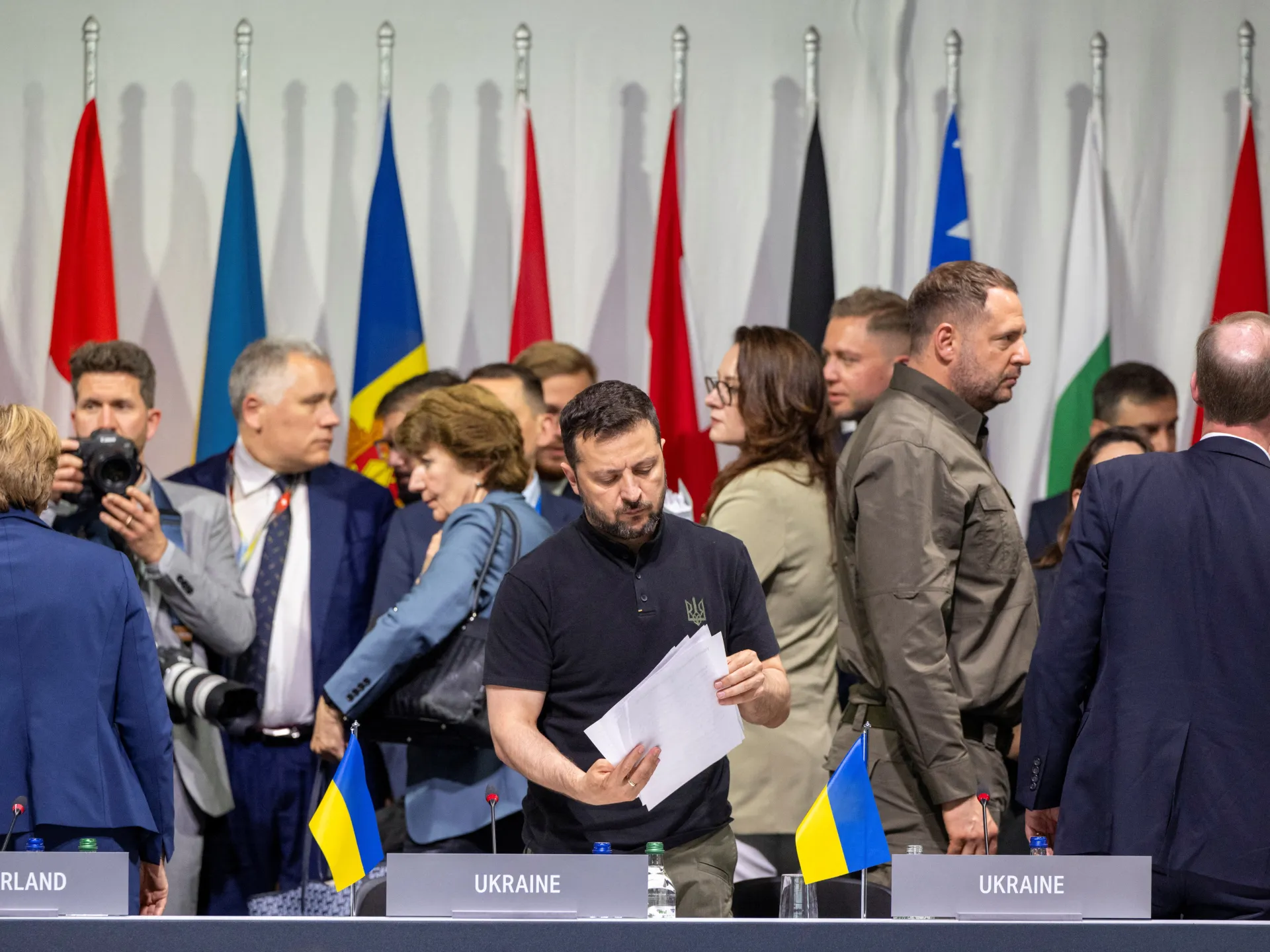Over 100 leaders, including US Vice President Kamala Harris and the presidents or heads of states from the EU, South America, the Middle East, and Asia, will convene in Switzerland on Saturday for a major effort to develop a peace plan for Ukraine.
The summit is set against the backdrop of a new agreement by G7 leaders in Italy, who have secured a €50 billion loan for Ukraine.
This loan is backed by the windfall profits from interest on Russian central bank assets frozen by the EU and other Western nations following the 2022 invasion of Ukraine.
The two-day peace conference, hosted at the luxury Bürgenstock resort near Lucerne, will address Kyiv’s proposed 10-point plan to end the war, along with three additional topics: the nuclear threat, food security, and humanitarian needs in Ukraine.
This meeting follows a demand from Russian President Vladimir Putin on Friday, who insisted that Kyiv must cede more territory, withdraw troops further within its borders, and abandon its NATO bid for him to end the conflict. These demands were rejected by Ukraine, the US, and NATO.
A joint communiqué expected on Sunday will likely emphasize the importance of adhering to UN principles of maintaining and respecting “sovereignty and territorial integrity.”
While this is not anticipated to advance peace directly, it aims to “reduce the space for any unhelpful initiatives,” according to those familiar with the conference.
For Ukrainian President Volodymyr Zelensky, the summit represents a significant opportunity to garner international support for his peace plan, which calls for a complete withdrawal of Russian troops from Ukraine and a return to its 1991 post-Soviet borders.
The absence of China from the conference, a move that led Zelensky to accuse Beijing of aiding Moscow in undermining the meeting—a claim China’s foreign ministry has denied—has been downplayed by the summit’s organizers.

Kyiv had hoped for a Chinese delegation to attend to lend further legitimacy to the conference and create a rift between Moscow and Beijing.
There were also hopes that Saudi Arabia might attend following what Zelensky described as “productive and energetic” talks with Saudi Crown Prince Mohammed bin Salman on Wednesday.
Moscow has dismissed the summit as futile. China, which maintains strong ties with Russia, cited the absence of Russia from the conference as a reason for not participating.
Senior US officials noted that the presence of so many leaders in Switzerland at a time when Ukraine is facing significant military challenges and amidst growing war fatigue is a notable achievement.
Max Bergmann, a former US State Department official, remarked, “It’s rather remarkable that there’s 100 countries showing up to a peace summit at which the main instigator of that conflict is not participating.”
Bergmann, now head of the Europe, Russia, and Eurasia Program at the Center for Strategic and International Studies, described the summit as a “diplomatic masterstroke.” William Courtney, a former US diplomat, called the Swiss outreach a “huge success.”
This summit follows earlier gatherings, including one in Saudi Arabia attended by 40 countries, including China, which has been promoting its own six-point peace plan.
As the summit approaches, China has ramped up its outreach through meetings with visiting dignitaries, phone calls, and messages via the WeChat platform. However, sources indicated that organizers were not concerned about these efforts, noting that no concrete diplomatic moves had emerged.
Attendees from the global south, including Colombia, Chile, Argentina, and Ecuador, will be present on Saturday, as well as representatives from Thailand, Singapore, the Philippines, and Japan. Malaysia and Cambodia, which have close ties to China, are not expected to attend.


